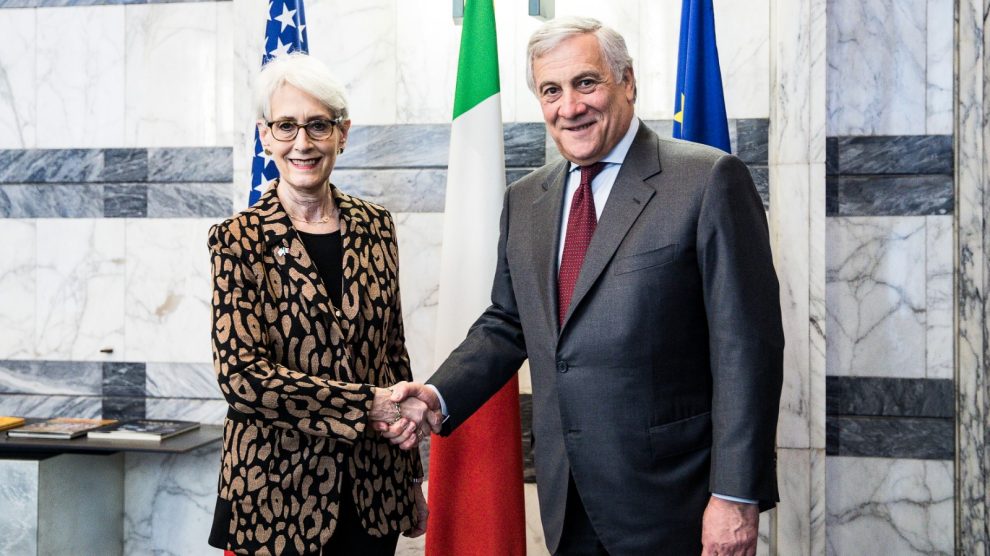Talking Taiwan. On Tuesday, US Deputy Secretary of State Wendy Sherman met with Italian Foreign Minister Antonio Tajani. According to Washington’s readout, the two “discussed further deepening our alliance to address global challenges including energy security and our opposition to unilateral efforts to change the status quo in the Taiwan Strait.
- They also “emphasised the importance of unified support for Ukraine in the face of Russia’s cruel attacks against Ukraine’s people and its infrastructure,” which Ms Sherman had already discussed in her conversation with LUISS University students.
In a later tweet, FM Tajani called the meeting “positive” and detailed its contents, which included the concept of friendship with the US as a pillar of Italy’s foreign policy.
Mind if I pop in? The number two in US diplomacy is on a week-long diplomatic mission to Europe. Her meeting with Mr Tajani (whose US counterpart is Secretary of State Antony Blinken) was not on her initial agenda, which featured meetings in Rome with Ambassadors Francesco Talò, diplomatic adviser to Prime Minister Giorgia Meloni, and Ettore Sequi, Secretary-General of the Ministry of Foreign Affairs.
- With them, Ms Sherman highlighted the strength of the Italy-US partnership, ongoing collaboration in support of Ukraine, joint efforts to address energy security, and – crucially – opposition to unilateral efforts to change the status quo in the Taiwan Strait.
Taipei has entered the chat. Comparing the notes and the tweet reveals that the Taiwanese issue has become a new feature in the bilateral relationship. That issue is indivisible from the matter of relations with China.
- Despite their G20 bid to maintain open channels and manage great power competition, Beijing and Washington diverge significantly on Taiwan, with the US engaged in strategic deterrence to avoid changes to the status quo in either direction.
Italy’s role. As far as Italy (still?) appears from military engagement in the Indo-Pacific, Rome represents an ally for Washington – both because of its good relations with Southeastern Asian Nations and its belonging to the democratic field in the model clash against autocracies.
- Italy is adopting a multilateral approach based on shared values that the Russian invasion of Ukraine and Chinese assertiveness have further consolidated.
- Rome’s approach to Chinese “shadow police stations” and to the Belt and Road Initiative MoU – which the government must backtrack from by the end of 2023, lest it renews automatically – will act as the bellwether, confirming whether shared values are regaining centrality in transatlantic relations.
Image: Twitter profile of FM Tajani





